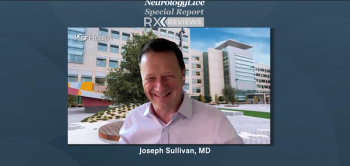
Epilepsy expert Joseph Sullivan, MD, detailed zorevunersen’s effects on adaptive behavior and communication skills, emphasizing improvements on the Vineland-3 scale that extend beyond seizure control. [WATCH TIME: 5 minutes]

Epilepsy expert Joseph Sullivan, MD, detailed zorevunersen’s effects on adaptive behavior and communication skills, emphasizing improvements on the Vineland-3 scale that extend beyond seizure control. [WATCH TIME: 5 minutes]

In this episode, Joseph Sullivan, MD, reviews zorevunersen’s long-term safety profile, including cerebrospinal fluid protein changes, procedural effects, and the absence of clinically significant adverse events. [WATCH TIME: 3 minutes]

Epilepsy expert Joseph Sullivan, MD, reviews 36-month results from the zorevunersen program, highlighting durable seizure reduction and sustained efficacy following dose optimization. [WATCH TIME: 4 minutes]
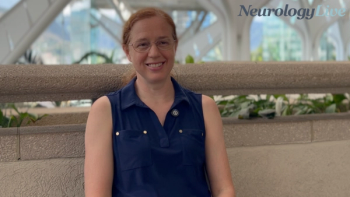
The professor of clinical neuroscience at Newcastle University discussed selecting appropriate and representative patient populations across different phases of clinical trials for Parkinson disease. [WATCH TIME: 5 minutes]
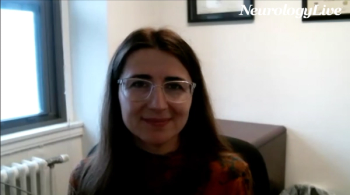
The assistant professor of neurology at Northwestern University shared important clinical insights for early-career clinicians entering neuroimmunology, emphasizing best practices in recognizing, testing, and confirming NMOSD. [WATCH TIME: 3 minutes]
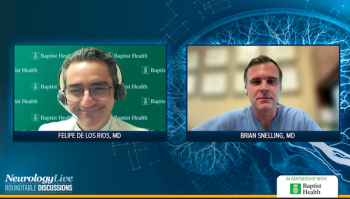
In this final episode, Drs. Snelling and De Los Rios share lessons from building a coordinated, multi-hospital stroke system and how network integration improves speed, access, and outcomes. [WATCH TIME: 3 minutes]
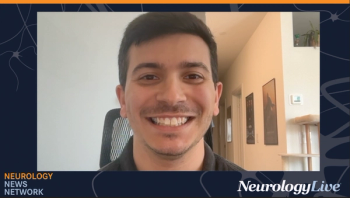
Neurology News Network for the week ending October 25, 2025. [WATCH TIME: 4 minutes]

In episode 4, neurologists Brian Snelling, MD, and Felipe De Los Rios, MD, discuss how stroke recovery and secondary prevention have evolved, highlighting new therapies, combination strategies, and the complexities of real-world implementation. [WATCH TIME: 4 minutes]
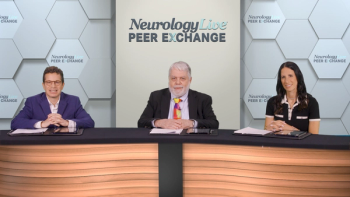
Panelists discuss how early treatment may protect the neuromuscular junction from permanent damage, prevent disease progression and crisis, and improve long-term outcomes. However, more data are needed from trials specifically studying patients with shorter disease duration rather than the typical average of 7 to 10 years.

Panelists discuss how treatment transitions are guided by shared decision-making between patients and providers, focusing on achieving minimal symptom expression, successful steroid tapering, and managing adverse events while considering early vaccination for complement inhibitor eligibility and personalized treatment approaches.
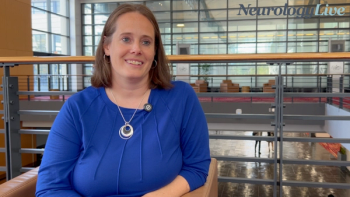
At CNS 2025, the associate professor of neurology and pediatrics at the University of Virginia discussed using educational model frameworks to prepare child neurology trainees for clinical practice. [WATCH TIME: 3 minutes]

The conversation centers around the pursuit of effective neuroprotective agents in stroke, the challenges of clinical trial design, and what could make future therapies succeed. [WATCH TIME: 5 minutes]
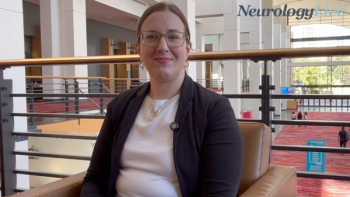
At CNS 2025, the program director of child neurology residency at Boston Children's Hospital discussed strategies to expose medical students to child neurology early in their clinical training. [WATCH TIME: 4 minutes]

In episode 2, a pair of stroke neurologists explore how artificial intelligence is accelerating stroke detection, streamlining workflows, and redefining collaboration in modern stroke care. [WATCH TIME: 4 minutes]
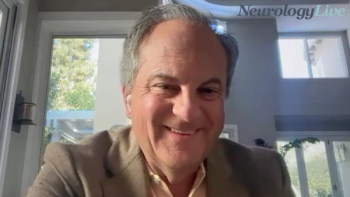
The president and founder of the Stuttering Treatment and Research Society highlighted the significance of interdisciplinary care for both children and adults with stuttering. [WATCH TIME: 5 minutes]

In this kickoff episode, Drs. Brian Snelling, MD, and Felipe De Los Rios, MD, discussed how evolving evidence continues to expand mechanical thrombectomy eligibility, from extended time windows to large-core and medium-vessel occlusions. [WATCH TIME: 6 minutes]
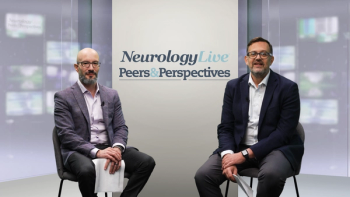
Experts emphasize that long-term monitoring after stepping down from high-efficacy multiple sclerosis therapies requires individualized clinical, MRI, and laboratory assessments to promptly detect disease activity or complications, alongside clear patient communication about goals and risks; looking forward, novel treatments and improved biomarkers promise to enhance personalized, safer management strategies.

Experts discuss the ongoing phase 4 COAST trial evaluating ozanimod as a step-down therapy for patients with stable multiple sclerosis on anti-CD20 treatments, highlighting careful patient selection, timing of initiation to balance disease control with immunosuppression risks, and the need for individualized decisions pending trial results.

Experts discuss how de-escalation in multiple sclerosis balances maintaining disease control with reducing treatment burden by transitioning from fumarates to options such as cladribine or emerging Bruton tyrosine kinase inhibitors, aiming for safer, more personalized long-term care.
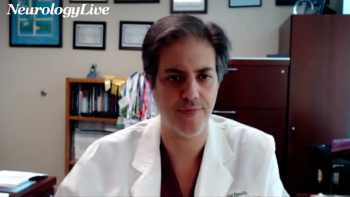
The codirector of interventional neuroradiology at Baptist Health's Neuroscience Institute, outlined a pragmatic, anatomy-first approach to aneurysm care, balancing endovascular options against open surgery and ways to tailor decision-making. [WATCH TIME: 3 minutes]
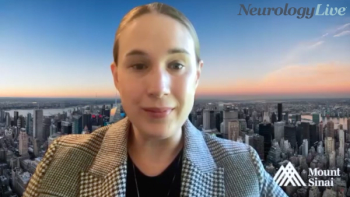
The associate professor of neurology at the Icahn School of Medicine at Mount Sinai talked about the major biomarkers used to track progression in Huntington disease. [WATCH TIME: 5 minutes]
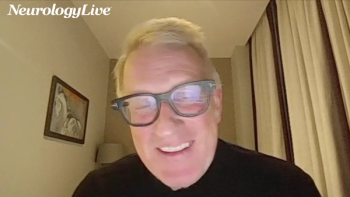
The executive vice president and head of R&D at Lundbeck provided more context on the scientific rationale of amlenetug, an investigational monoclonal antibody designed to halt the spread of alpha-synuclein aggregates in multiple system atrophy. [WATCH TIME: 3 minutes]
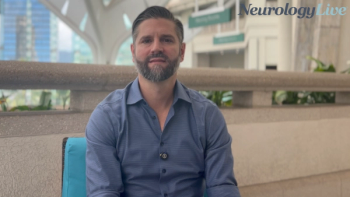
At MDS 2025, the senior medical director of UCB's Translational Medicine Neuroscience and Gene Therapy presented data from the ATLANTIS study of glovadalen in patients with Parkinson disease. [WATCH TIME: 4 minutes]
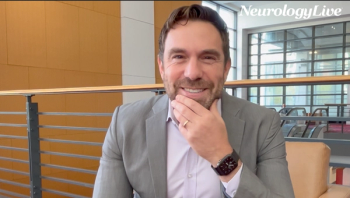
The associate professor of neurology and pediatrics at the University of California, San Francisco, discussed updated recommendations for continuous EEG use in neonates, highlighting risk stratification, and the growing importance of family involvement. [WATCH TIME: 3 minutes]

Neurology News Network. for the week ending October 18, 2025. [WATCH TIME: 4 minutes]
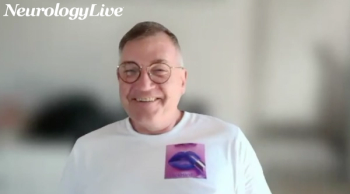
The professor of neurology at Barts and The London School of Medicine and Dentistry provided commentary on the ways to improve inclusion for multiple sclerosis clinical trials, factoring in patients with more advanced stages of disease. [WATCH TIME: 4 minutes]

Panelists discuss how inebilizumab in the MINT trial demonstrated efficacy in both acetylcholine receptor (AChR)– and MuSK antibody–positive patients with 6-month dosing intervals, successful steroid tapering during treatment, and the potential for upstream B-cell targeting to provide durable disease control.
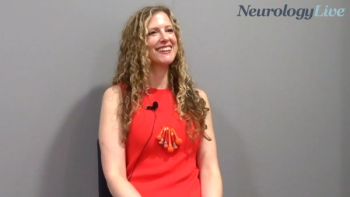
The assistant professor of neurology at Oregon Health & Science University discussed emerging evidence that aerobic exercise may enhance remyelination in patients with multiple sclerosis. [WATCH TIME: 5 minutes]

Panelists discuss how the primary unmet needs include better treatments for seronegative and ocular-only patients, achieving minimal symptom expression in more than the current 45% to 50% of patients, and developing therapeutic biomarkers to guide personalized treatment selection.
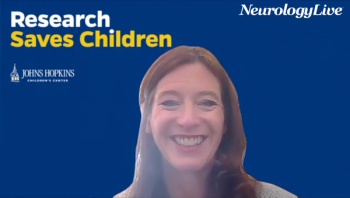
The pediatrician in chief at Johns Hopkins Children’s Center outlined the logistical, ethical, and regulatory hurdles of conducting pediatric MS trials, emphasizing the need for faster, more inclusive study designs to bring emerging therapies to clinic. [WATCH TIME: 5 minutes]